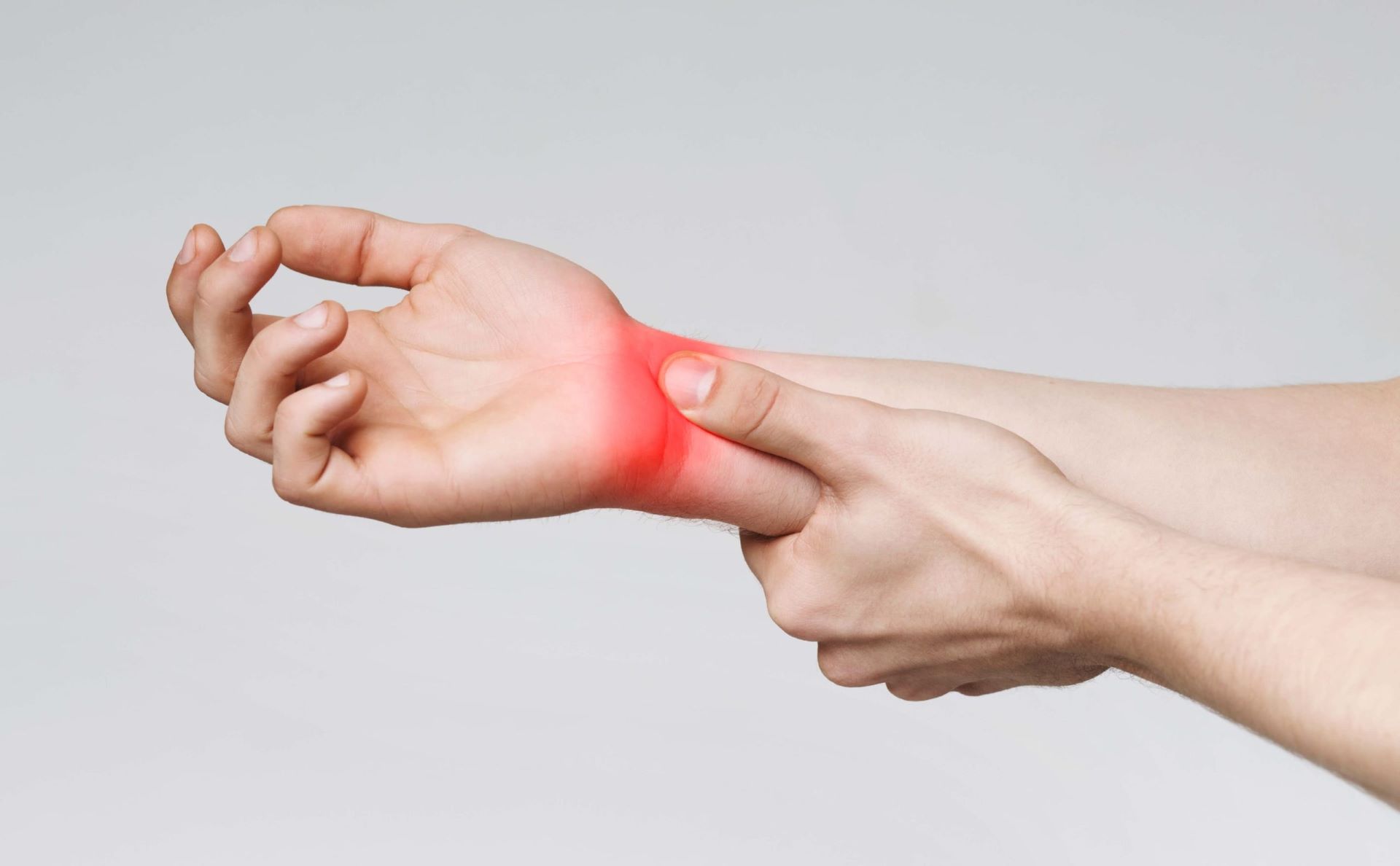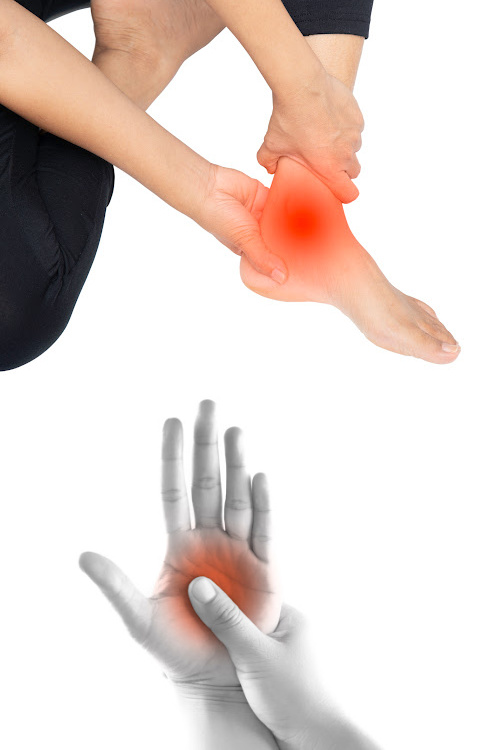Experiencing numbness and tingling in the fingers can be quite unsettling. It can feel like a strange sensation that starts with a subtle loss of feeling, followed by a tingling or “pins and needles” effect that can range from mild to intense.
Over time, your fingers may seem to lose their sense of touch, making everyday tasks that require dexterity and precision a real challenge. When it comes to individuals experiencing these symptoms, finding a clear explanation and effective treatment becomes a top priority.
In this article, we will delve into the common causes of tingling and numbness in the fingers and explore the treatment options available that can help you find relief. Let’s begin by understanding why you may be experiencing these sensations and how they can be addressed.
Why Are You Feeling Numbness And Tingling In Your Fingers?
Experiencing numbness and tingling in the fingers can significantly impact your daily activities and overall quality of life. It is vital not to ignore or overlook these signs, as they could indicate the presence of an underlying chronic pain condition.
Tingling and numbness are symptoms often associated with conditions that affect the complex network of nerves in our hands. Nerves play a pivotal role in transmitting sensory information, and when their functionality is compromised, it can lead to abnormal sensations.
Gaining a comprehensive understanding of the underlying causes is crucial for obtaining an accurate diagnosis and implementing effective treatment strategies. Here, we explore the common conditions that are frequently linked to numbness and tingling in the fingers.
Conditions Associated With These Symptoms
There are a number of health conditions that can be linked to feelings of numbness and tingling in the fingers. Here are some of the more common conditions:
Carpal Tunnel Syndrome
Carpal tunnel syndrome occurs when the median nerve, which runs through a narrow passage in the wrist called the carpal tunnel, becomes compressed. This compression can occur due to various factors, such as repetitive hand movements, injury, or certain medical conditions.
When an increased amount of pressure is placed on the median nerve, it can lead to numbness, tingling, and weakness in the fingers, particularly the thumb, index, middle, and ring fingers. Likewise, ulnar compressive disorders like cubital tunnel syndrome
Peripheral Neuropathy
Peripheral neuropathy refers to damage or dysfunction of the peripheral nerves, which are the nerves outside the brain and spinal cord. It is known to have various causes, including diabetes (both type 1 and type 2), vitamin deficiencies, autoimmune diseases, and certain medications.
When peripheral nerves in the hands are affected by peripheral neuropathy, it can result in numbness, tingling, and other sensory abnormalities.
Fibromyalgia
Fibromyalgia is a chronic pain condition that is characterized by widespread musculoskeletal pain, fatigue, and tender points throughout the body. Many individuals with fibromyalgia also experience numbness and tingling sensations in their fingers and hands.
While the exact cause of fibromyalgia is not fully understood, numbness and tingling sensations in the fingers can occur as a result of heightened nerve sensitivity and abnormal pain processing in the central nervous system.
These are just a few examples of common conditions that can lead to numbness and tingling in the fingers. If you are experiencing these symptoms, it is important to consult a healthcare practitioner for a professional diagnosis. Prompt diagnosis and appropriate treatment can prevent the condition from worsening.
Furthermore, there are additional conditions that can lead to these uncomfortable sensations in the hands and fingers. These conditions may arise from physical changes in the hands, which can be a result of either an injury or an underlying medical condition. We will discuss these conditions in detail next.
Other Conditions Possibly Causing Finger Numbness And Tingling
Apart from the conditions mentioned above, there are other factors that can contribute to numbness and tingling in the fingers, which are closely related to the intricate structures of the hand and changes that occur within them. This may occur from conditions such as:
Spurs From Arthritis
Arthritis, particularly osteoarthritis, can lead to the formation of bone spurs or osteophytes. These bony growths can develop in the joints of the hands and fingers. Over time, these spurs can impinge on nearby nerves, leading to symptoms such as numbness, tingling, and pain.
Injuries
Injuries to the hand, wrist, or forearm can result in nerve damage and subsequent numbness and tingling sensations in the fingers. Fractures, dislocations, sprains, or repetitive stress injuries can all contribute to nerve compression or irritation, causing these symptoms.
Raynaud’s Phenomenon
Raynaud’s phenomenon is a condition that causes the blood vessels of the hand to constrict and narrow, typically in response to cold temperatures or stress. When the blood vessels constrict, this can reduce blood flow to the fingers, leading to numbness, tingling, and color changes in the affected fingers.
It’s crucial to keep in mind that numbness and tingling in the fingers can sometimes be associated with more serious underlying conditions, which warrant medical attention and further investigation. We will explore the possibility of these more serious conditions in the next section.
Could It Be A More Serious Condition?
While numbness and tingling in the fingers are often attributed to relatively benign conditions, it’s important to consider the possibility of more serious underlying conditions. Ignoring persistent or worsening symptoms can be risky, as they could indicate an underlying issue requiring attention.
One such condition is diabetes, a metabolic disorder that affects the body’s glucose processing. Uncontrolled high blood sugar levels can damage the nerves, leading to peripheral neuropathy. When the peripheral nerves in the hands are affected, it can result in numbness, tingling, and a loss of sensation.
Arthritis, characterized by joint inflammation and stiffness, can also contribute to finger numbness and tingling. Conditions like rheumatoid arthritis and psoriatic arthritis may cause nerve compression in the joints, leading to these symptoms.
If you are experiencing persistent or worsening symptoms, seeking medical attention is essential. It’s crucial to rule out any serious underlying conditions and receive the appropriate treatment related to your symptoms.
Remember, early intervention can make a significant difference in managing these conditions and improving your quality of life. Now, let’s shift our focus to explore some of the conventional treatment options available for managing the symptoms of tingling and numbness in the fingers.
Conventional Treatment Options
When it comes to treating numbness and tingling in the fingers, there are several conventional treatment options available that your doctor may recommend. These can include:
- Limiting Movement: Resting the affected hand and avoiding repetitive movements or activities that exacerbate the symptoms.
- Splinting: Wearing a splint or brace to immobilize the hand and reduce pressure on the affected nerves.
- Nerve Gliding Exercises: Engaging in specific exercises that promote the gliding of nerves. This helps to relieve pressure within the hand and restore normal nerve function. This often entails consulting with a healthcare professional, such as a doctor or a physical therapist who specializes in nerve and hand conditions.
- Medications: To manage the pain and reduce inflammation associated with tingling and numbness in the fingers, healthcare professionals may recommend over-the-counter pain relievers or prescription medications. However, it’s important to note that medications typically offer temporary relief and are typically not recommended for long-term use.
- Complementary Therapies: Therapeutic techniques, including acupuncture, physical therapy, occupational therapy, and stretching, offer complementary approaches to traditional medicine by providing multidisciplinary intervention.
These treatment options aim to alleviate symptoms, improve hand function, and address the underlying causes of numbness and tingling in the fingers. However, for individuals who find that conventional treatments alone may not provide sufficient relief, alternative approaches, such as our approach to Neuragenex Neurofunctional Pain Management, can offer promising solutions.
How Neuragenex NFPM Addresses Painful Symptoms
Neuragenex Neurofunctional Pain Management is a comprehensive approach to pain relief and health restoration. Our team of dedicated specialists offers an alternative to traditional treatment methods by providing non-pharmaceutical, non-surgical, non-invasive, and non-chiropractic options for pain management.
Neuragenex NFPM focuses on addressing the underlying causes of chronic pain conditions, including those we discussed earlier, that can lead to the uncomfortable sensations of numbness and tingling in the fingers.
So, what does Neuragenex Neurofunctional Pain Management involve, and how does it work? Our Neuragenex NFPM protocols include electroanalgesia treatments and specialized IV therapy, accompanied by lifestyle counseling.
Electroanalgesia
Electroanalgesia is a pain management technique that uses high-pulse electrical current to ease pain, boost blood circulation, improve mobility, and induce...
Read More About Numbness And Tingling In Fingers Electroanalgesia
IV Therapy
IV nutritional therapy, or intravenous therapy, involves administering vital nutrients directly to the bloodstream through an IV. This type of treatment bypasses the digestive system, allowing for maximum absorption and utilization of nutrients by the...
Lifestyle Counseling
Lifestyle counseling is an approach to managing chronic pain that involves identifying, assessing, and modifying lifestyle factors contributing to an individual's pain. For example, lifestyle factors such as nutrition, physical activity, stress, sleep quality...
Read More About Numbness And Tingling In Fingers Lifestyle Counseling
Conditions We Treat With Neuragenex Neurofunctional Pain Management

Carpal Tunnel Syndrome Pain Treatment
Carpal tunnel syndrome is a condition that can cause debilitating pain and weakness in the hands, wrists, and arms. If you're suffering from this condition, our non-invasive, non-chiropractic treatment can provide quick relief from pain, improved grip...

Peripheral Neuropathy Pain Treatment
We offer a unique and leading-edge approach to treating the burning, tingling, throbbing pain that may be associated with peripheral neuropathy or nerve damage. We have helped 100’s of patients, just like you, reduce their pain fast and get back to living...

Fibromyalgia Pain Treatment
Fibromyalgia is a chronic disorder that causes several symptoms, including widespread pain, fatigue, and cognitive impairment. Our non-surgical and drug-free treatments can help reduce the chronic pain associated with fibromyalgia. Additionally, our holistic...

Ulnar Nerve Entrapment Pain Treatment
Ulnar nerve entrapment is a condition that affects the arm and hand, causing pain, numbness, and tingling sensations. Ulnar nerve entrapment pain can be debilitating and significantly impact your quality of...
Get Long-Lasting Relief For Numb And Tingling Fingers
Numbness and tingling in the fingers can significantly impact your daily life, but the good news is that they are treatable symptoms. Neuragenex Neurofunctional Pain Management presents a comprehensive approach to address both the symptoms and the underlying conditions causing them.
By focusing on pain relief, health restoration, and lifestyle improvements, Neuragenex Neurofunctional Pain Management aims to relieve pain, restore health, and magnify the quality of life for individuals suffering from chronic pain conditions.
If you are experiencing numbness and tingling in your fingers, don’t hesitate to reach out to us for an evaluation and to explore your treatment options. With our specialized approach, you can find long-lasting relief and regain control over your hand health.
Remember, you don’t have to live with the discomfort of numbness and tingling. Take the first step towards a pain-free life by seeking professional help and discovering the possibilities that Neuragenex Neurofunctional Pain Management can offer.
Experiencing numbness and tingling in your fingers




